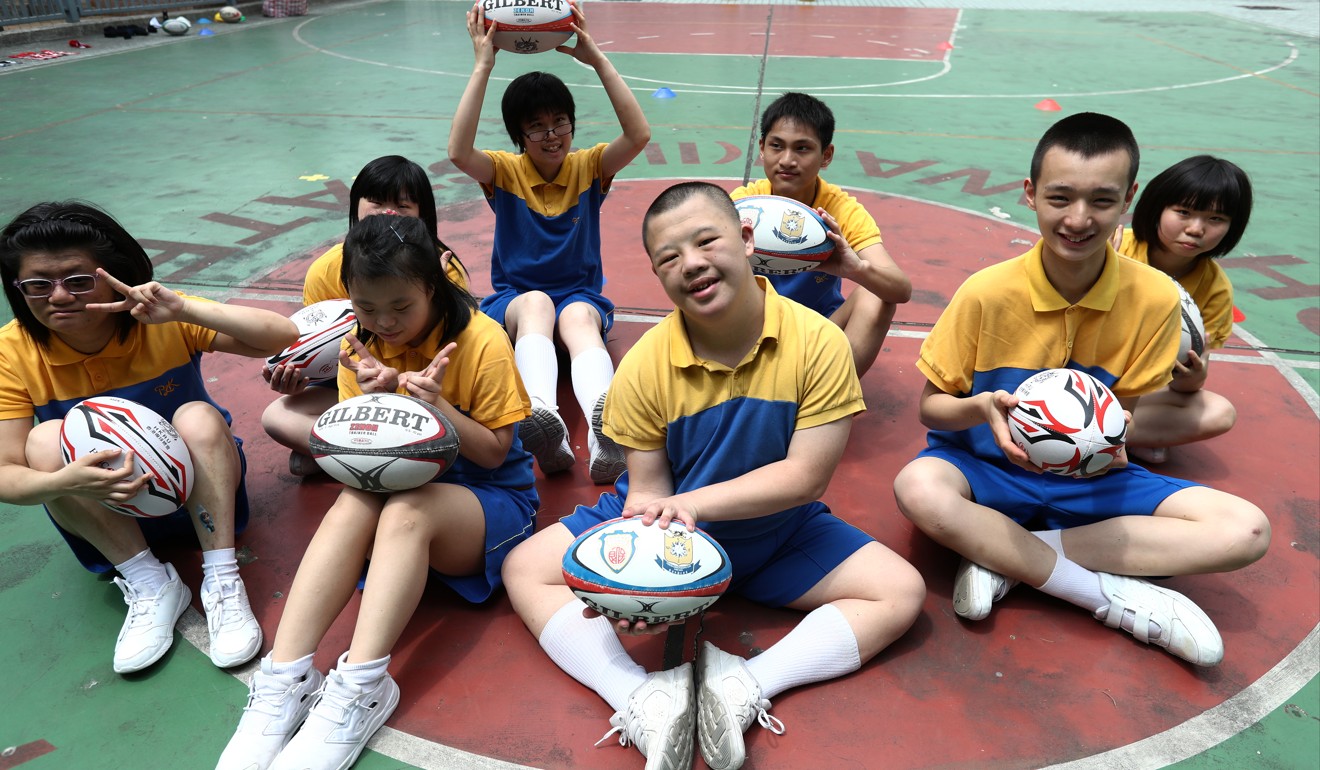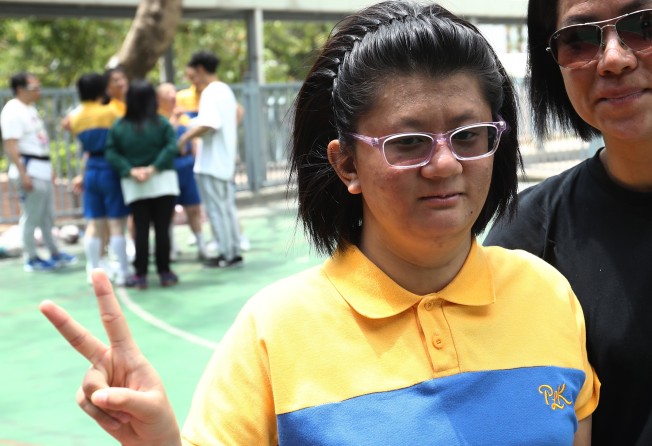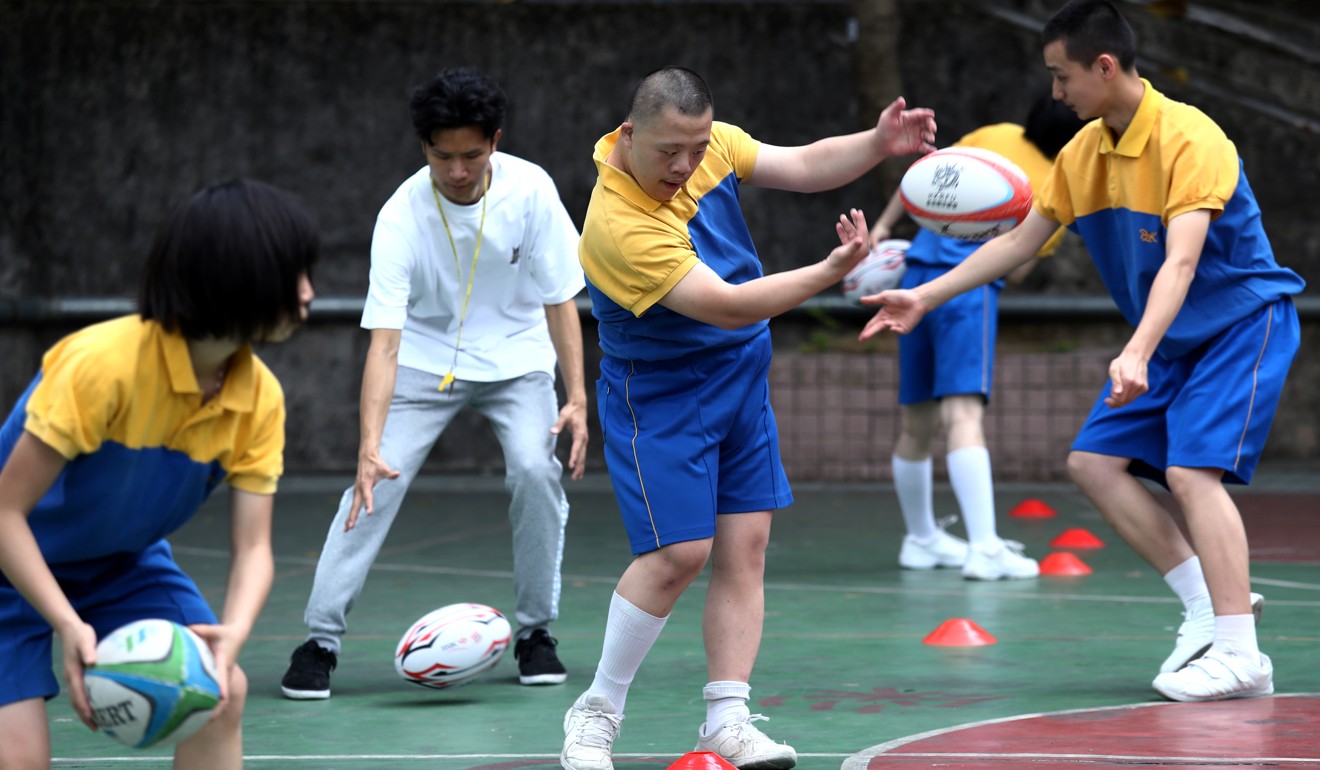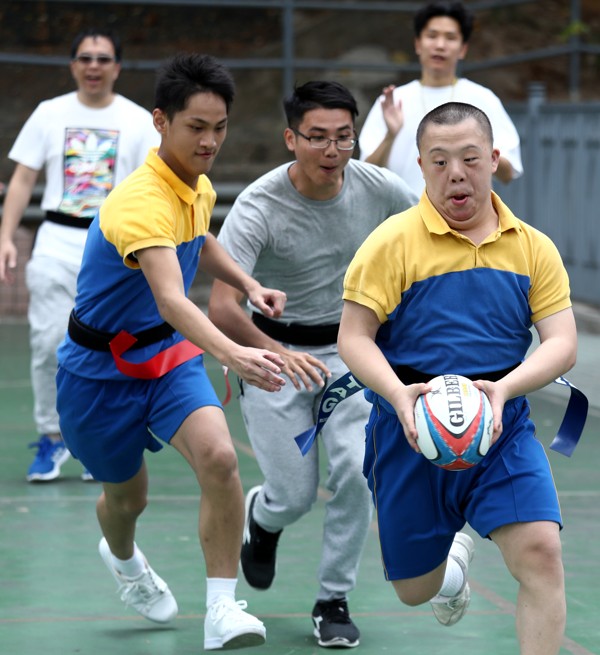
A Hong Kong girl, a DNA deletion syndrome, and a passion for rugby
Zoe Chan, 17, was diagnosed as a baby with Wolf-Hirschhorn syndrome, a genetic condition that affects growth and results in intellectual disability. She and her teachers tell how sport has been crucial to discovering her potential

In the playground of a Wong Tai Sin school on Tuesday, a group of pupils took part in their weekly touch rugby practice.
The session was not your usual game. The players at Po Leung Kuk Anita LL Chan (Centenary) School all suffer from some moderate form of intellectual disability.
Among them was Zoe Chan Hei-tung.
“I love rugby, because I get to high-five my teammates whenever our team scores,” the 17-year-old said cheerfully.
Watching her impressive performance on the field disguises the fact she suffers from Wolf-Hirschhorn syndrome. It is a genetic condition that affects growth and development and results in intellectual disability and seizures.

The disease is caused by the partial deletion from the short arm of chromosome 4 in a person’s DNA.
Prior to the diagnosis, Zoe’s mother, Regina Chau Wong Mei-chuen, had blamed herself for her only child’s problems.
“Zoe was developing normally until she started having rapid seizures and high fevers when she was little over one-year-old,” Chau said. “She was then prescribed a drug to take for a year.”
The Chans were unsure about putting such a young child on heavy medication without a clear diagnosis, but agreed to do so in the hope she would fully recover.
“We asked the doctor about side-effects. He vaguely explained that she could experience low muscle tone and maybe delayed growth, but he insisted it was the best thing for Zoe at that stage.”
But after the seventh day on the drug, her parents began to have their worst fears realised.

“That night, her whole body broke out in chickenpox like a rash, and seizures. I knew she was having an allergic reaction due to the medication. Her condition continued to deteriorate and she was treated in hospital for nearly a month. I never got an explanation for what was happening.”
Desperate for answers, the young mother turned to genetic testing.
“After the second round of examinations, results showed that the deletion of Zoe’s chromosome had caused her condition,” Chau said.
She resolved to make her daughter’s life as enjoyable as possible. This would lead to dance classes, swimming lessons and cooking workshops, but one of Zoe’s favourite activities was rugby.
“My teacher, ‘Wong Sir’, makes it fun. He encourages us to improve,” Zoe said on Tuesday. “From not knowing a thing about the sport, we have now learned to play as a team and cooperate better when passing the ball.”

The youngster said she still needs to work on her catching. She didn’t even used to like sports, her mother said, until she was enrolled at the special-needs school 10 years ago.
She and her classmates have tried their hand at a range of activities, from dodgeball to curling to horse riding.
That is largely down to the school’s extracurricular activities officer, William Wong.
“These students may be mentally challenged, but they are not bedridden, so we shouldn’t strip them of their right to stay active. You’d be surprised how these activities open up their potential,” the 38-year-old said.
Working with disadvantaged kids is not an easy task but is something Wong relishes.
“Some of them are slower learners than others but they eventually all get the hang of it ... Once that happens, it’s the most satisfying feeling for me and them both,” he said.
They eventually all get the hang of it ... Once that happens, it’s the most satisfying feeling for me and them both
“That is why I want them to constantly experience new things, because it will allow them to open up to challenges and train them to be more independent, which is a very valuable life lesson.”
For every sport Wong wants to introduce to the school, he must first win approval from the principal and conduct a risk assessment. He then contacts the local athletic federation for that particular sport to invite professional coaches to stage trial courses for the youngsters.
Staff and teachers at the school often also enrol, eager to learn so they can play the sports together with the children.